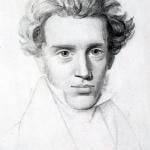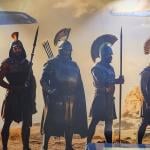Does the Apostle Peter conform to the Westminster Standards as interpreted by the Federal Vision Study Committee?
At the beginning of his second epistle, Peter says that “divine power” has granted “everything pertaining to life and godliness” (1:3). God communicates the life and godliness that results from His power “through the knowledge of Him who called us by His own glory and excellence” (1:3), presumably Jesus (cf. 1:16). This knowledge is clearly not just intellectual or doctrinal, but personal knowledge of the Savior and Lord Jesus. The result is both positive and negative: We are promised that we will be made “partakers of divine nature” and we are promised that God’s power will deliver us from “the corruption that is in the world by lust” (1:4).
A cluster of the same terms appears at the end of chapter 2:
-Peter speaks of some who have “escaped” (APOPHUGONTES), using the same form of the same verb found in 1:4.
-In 2:20, the people Peter talks about have escaped the MIASMA TOU KOSMOU, the “miasma of the world.” Peter’s wording is slightly different in 1:4: We have escaped the “in-the-world-by-lust-corruption,” and “corruption” is PHTHORAS rather than MIASMA. The thought is very similar, however. (I suspect that “world” here refers to Judaism, and that there’s an implicit analogy with the exodus.)
-In 2:20, the instrument for escaping the miasma of the world is the “knowledge of the Lord and Savior Jesus Christ.” This is the same instrument God uses for communicaing grace and peace (1:2) and for granting life and godliness (1:3). It is the same knowledge by which we grow in grace (3:18). It is possible, further, that 2:21’s reference to the “way of righteousness” should be personalized – knowing the way of righteousness is knowing the Righteous One who is the Way, the Truth, and the Life.
Peter, in short, uses very similar language to describe the people in 1:3-4 and 2:20. Both have escaped from the world; both have escaped from the world through the knowledge of Jesus. There are differences, to be sure: Peter does not say that God has granted “everything pertaining to life and godliness” to those in 2:20. But the similarities are striking: The people in 2:20 know Jesus, and receive some benefit from that knowledge.
But those benefits are temporary. While those Peter describes in chapter 1 grow from faith to virtue to knowledge to self-control, and so on, the people in 2:20 don’t remain in the way of righteousness. They return to the miasma of the world, and their last state is worse than the first (2:20b-22). They are people who have failed to grow because they have “forgotten purification from former sins” (1:9).
So, again, my question: Does the Apostle Peter conform to the Westminster Standards as interpreted by the FV Study Committee?











